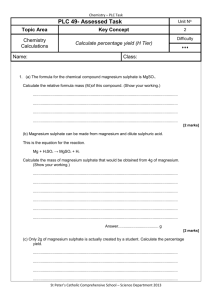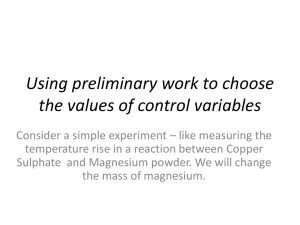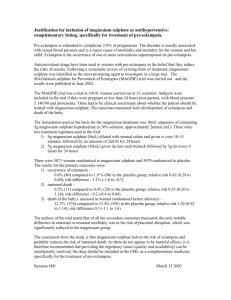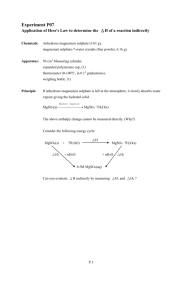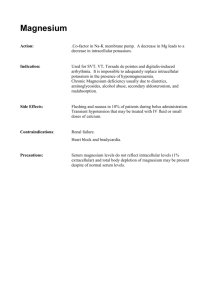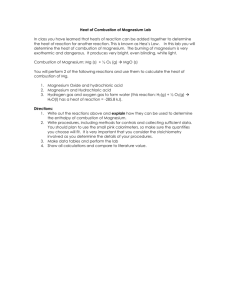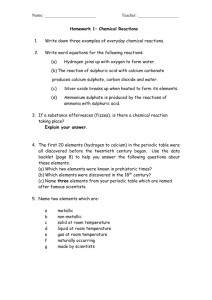Enthalpy change of solution of hydrated magnesium sulphate
advertisement
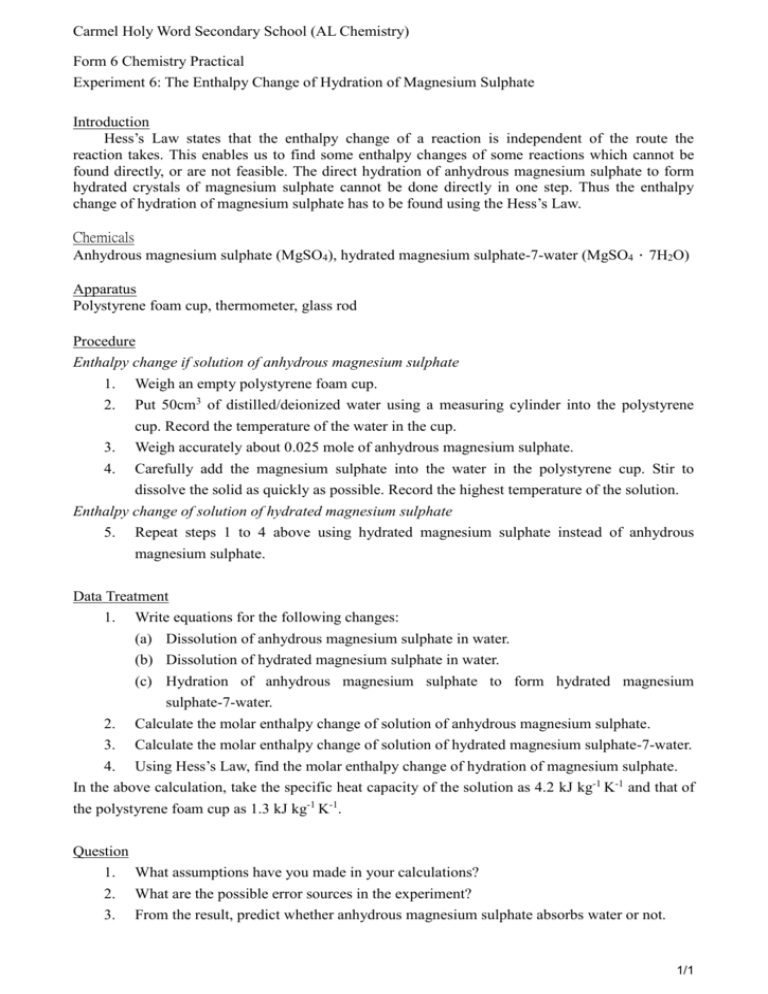
Carmel Holy Word Secondary School (AL Chemistry) Form 6 Chemistry Practical Experiment 6: The Enthalpy Change of Hydration of Magnesium Sulphate Introduction Hess’s Law states that the enthalpy change of a reaction is independent of the route the reaction takes. This enables us to find some enthalpy changes of some reactions which cannot be found directly, or are not feasible. The direct hydration of anhydrous magnesium sulphate to form hydrated crystals of magnesium sulphate cannot be done directly in one step. Thus the enthalpy change of hydration of magnesium sulphate has to be found using the Hess’s Law. Chemicals Anhydrous magnesium sulphate (MgSO4), hydrated magnesium sulphate-7-water (MgSO4.7H2O) Apparatus Polystyrene foam cup, thermometer, glass rod Procedure Enthalpy change if solution of anhydrous magnesium sulphate 1. Weigh an empty polystyrene foam cup. Put 50cm3 of distilled/deionized water using a measuring cylinder into the polystyrene cup. Record the temperature of the water in the cup. 3. Weigh accurately about 0.025 mole of anhydrous magnesium sulphate. 4. Carefully add the magnesium sulphate into the water in the polystyrene cup. Stir to dissolve the solid as quickly as possible. Record the highest temperature of the solution. Enthalpy change of solution of hydrated magnesium sulphate 2. 5. Repeat steps 1 to 4 above using hydrated magnesium sulphate instead of anhydrous magnesium sulphate. Data Treatment 1. Write equations for the following changes: (a) Dissolution of anhydrous magnesium sulphate in water. (b) Dissolution of hydrated magnesium sulphate in water. (c) Hydration of anhydrous magnesium sulphate to form hydrated magnesium sulphate-7-water. 2. Calculate the molar enthalpy change of solution of anhydrous magnesium sulphate. 3. Calculate the molar enthalpy change of solution of hydrated magnesium sulphate-7-water. 4. Using Hess’s Law, find the molar enthalpy change of hydration of magnesium sulphate. In the above calculation, take the specific heat capacity of the solution as 4.2 kJ kg-1 K-1 and that of the polystyrene foam cup as 1.3 kJ kg-1 K-1. Question 1. What assumptions have you made in your calculations? 2. What are the possible error sources in the experiment? 3. From the result, predict whether anhydrous magnesium sulphate absorbs water or not. 1/1
